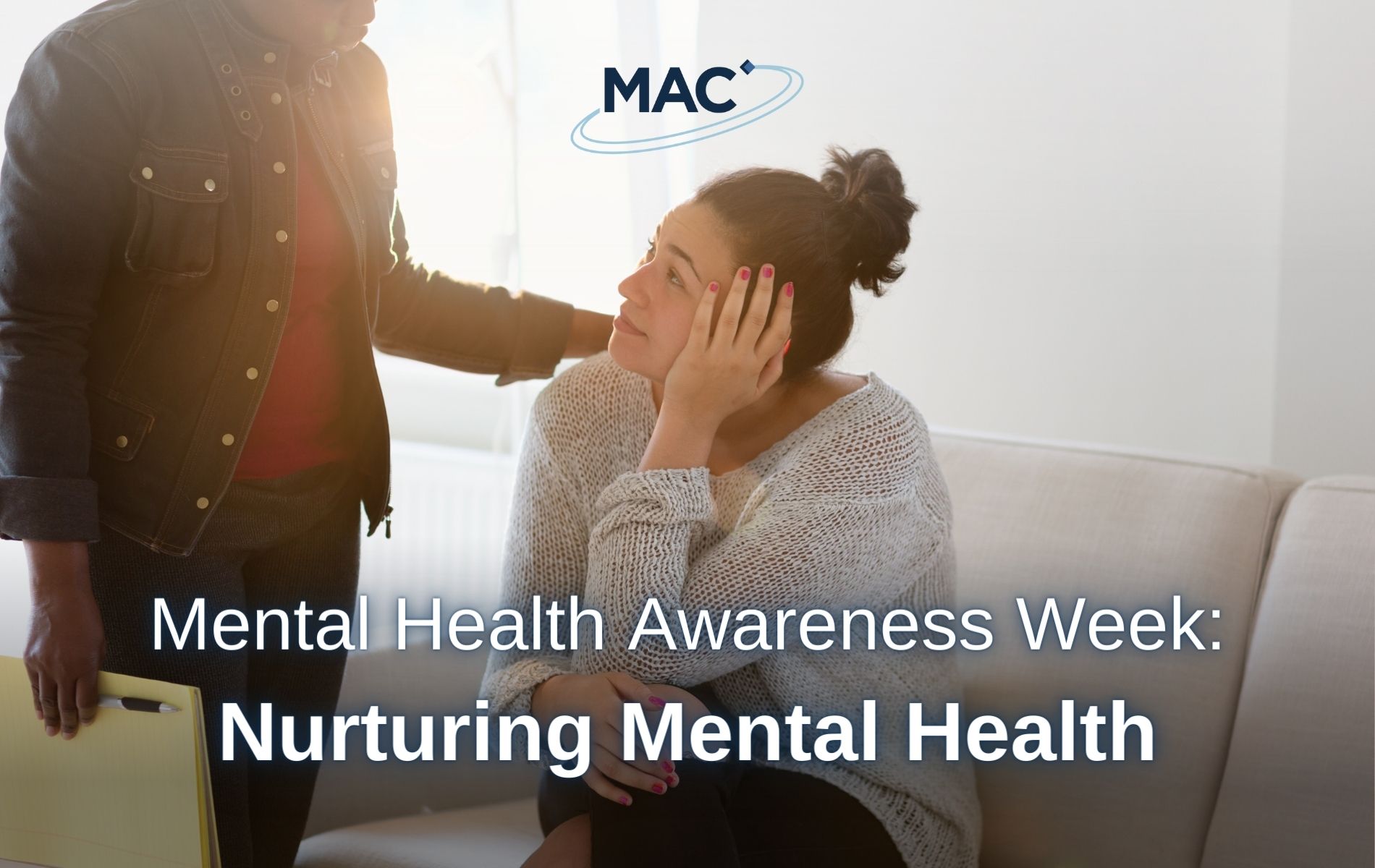This Mental Health Awareness Week, we’re shining a light on the difference between the broader concept of mental health and specific mental health conditions. Mental Health Awareness Week provides us with an opportune moment to explore this distinction and delve into strategies for fostering positive mental wellbeing.
What is the difference between Mental Health and Mental Health Conditions?
Mental health encompasses our emotional, psychological, and social wellbeing. It reflects how we think, feel, and act, influencing how we handle stress, relate to others, and make choices in life. Essentially, mental health is akin to our overall state of emotional equilibrium and resilience.
On the other hand, mental health conditions, often referred to as mental illnesses, are diagnosable disorders that significantly interfere with an individual’s thinking, feeling, mood, behaviour, or ability to relate to others. These conditions encompass a broad spectrum, ranging from mood disorders like depression and bipolar disorder to anxiety disorders, obsessive compulsive disorder, and more.
It’s estimated that around 1 in 6 people in the UK aged 16+ will experience symptoms of a mental health condition every week1.
Why is Understanding the Difference Important?
Understanding this disparity is crucial because it emphasises that mental health is a spectrum. Just as physical health can fluctuate between wellness and illness, mental health exists on a continuum. There is still a prevalent stigma attached to mental health conditions, and improved awareness and understanding of what a mental health condition is can contribute to breaking down this stigma. Despite progress, over half of people living with a mental illness report feeling shamed for living with their respective condition2.
We all experience challenges and stressors that can impact our mental wellbeing, but not everyone develops a diagnosable mental health condition. Nurturing positive mental health can equip us with resilience and coping mechanisms to navigate life’s inevitable ups and downs.
Tips for Looking After Mental Health
- Self-care Practices – Engaging in self-care activities tailored to your preferences and needs is paramount. Whether it’s practicing mindfulness, exercising regularly, maintaining a balanced diet, getting adequate sleep, or pursuing hobbies, carving out time for self-nurturance is vital for mental wellbeing.
- Building Supportive Relationships – Cultivating meaningful connections with friends, family, or support groups fosters a sense of belonging and can provide emotional support. Sharing experiences, feelings, and vulnerabilities with trusted individuals can alleviate stress and enhance resilience. Despite this, over 1/3 of adults in the UK state that they never speak about mental health struggles, be it to friends, family, or a mental health professional3.
- Seeking Professional Help When Needed – Just as we prioritise physical health by consulting healthcare professionals, addressing mental health concerns warrants seeking assistance from therapists, counsellors, or psychiatrists. It’s estimated that around 1 in 8 adults receive mental health treatments4. Therapy offers a safe space to explore emotions, develop coping strategies, and gain insights into behavioural patterns.
- Maintaining Work-Life Balance – Balancing professional responsibilities with personal time is crucial for preventing burnout and preserving mental wellbeing. Ensure to set boundaries, prioritise tasks, and schedule downtime to avoid burnout, a phenomenon which around 88% of UK adults have experienced in the last two years5.
- Practicing Gratitude and Positive Thinking – Fostering a mindset of gratitude and optimism can reframe challenges as opportunities for growth. Practicing gratitude journaling or reflecting on positive moments cultivates resilience and enhances overall well-being.
Living with a Mental Health Condition?
By embracing these strategies and acknowledging the distinction between mental health and mental health conditions, we can proactively nurture our wellbeing and contribute to a society that prioritises mental health awareness and support.
Here at MAC Clinical Research, we are committed to improving quality of life for people living with mental health conditions through clinical trials investigating potential new treatment options.
If you’ve been living with OCD or OCD symptoms for the last year and your current antidepressant isn’t fully working, you could be eligible for MAC’s clinical trial. For more information, visit our OCD research webpage.
Alternatively, if you are living with depression, visit MAC’s current trials webpage to find a clinical trial which you may be eligible for.
If eligible for one of MAC’s clinical trials, you’ll receive travel expenses, a full health check-up, and financial reimbursement.
1 House of Commons Library – Mental health statistics: prevalence, services and funding in England
4 NHS England – Adult Psychiatric Morbidity Survey: Survey of Mental Health and Wellbeing, England, 2014.
5 Mental Health UK – The Burnout Report




